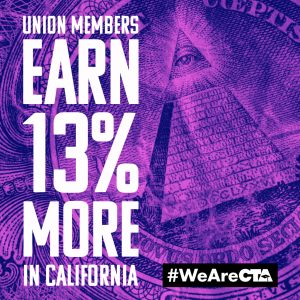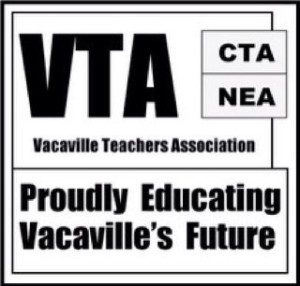English teacher, Jeffrey Mitchum, 35, of Dixon, begins his run on the popular TV quiz show tonight

He said, “You can fool all the people some of the time, and some of the people all the time, but you cannot fool all the people all the time.”
And a famous American rear admiral said, “Surrender? I have not yet begun to fight.”
It is unlikely Jeffrey Mitchum, a 12th-grade Vacaville High English teacher, will get those statements, much less correctly answer Abraham Lincoln and John Paul Jones, respectively, when he appears on “Jeopardy!” Tuesday night on ABC-TV affiliates in the Bay Area. (Check local listings for exact time.)
But during an interview Sunday with The Reporter, he quipped that nearly any statement about “an Irish poet” will lead to the answer “Dylan Thomas.”
And Mitchum, 35 and in his sixth year teaching at the West Monte Vista Avenue campus, came to that conclusion by watching past episodes of the popular and longtime TV quiz show in which the host gives the answers first while the contestants supply the questions. It is a game about knowing stuff and how to effectively demonstrate how much you know, demanding expertise, from recalling facts to waging a bet to handling the buzzer.
In a contractual agreement with the show’s producers, he was not allowed to reveal how he fared on the episode (or episodes) recorded two months ago in Culver City, but virtually all other questions were permissible.

When he finally received an invitation to be on the show, Mitchum was ecstatic but still “pretty surprised.”
“I hear stories about people who have auditioned 10 to 15 times,” he said. “This was my first audition” after taking the first step: on online, timed, 50-question “Jeopardy!” test several times by going to the show’s website.
“I gave them my email address and got a message, ‘We’ll email you when the test is happening,’ ” recalled Mitchum, adding that he received another email a few days before taking the online test. “I had to be sitting in front of my computer.” That was back in March 2020, he noted.
A timed test? Clench your teeth, steel your nerves.
“Yes, it was” nerve-wracking, he agreed. “Once you started taking the written test, it becomes nerve-wracking. And the more questions you answer, the more nerve-wracking it becomes.”
The statements were in the typical “Jeopardy!” show format, explained Mitchum.
“But you had something like 10 seconds to type in a response,” he recalled.
The statements came from a wide variety of categories, as a way to test contestants’ overall knowledge, everything from world history to science to literature — “Anything you could ever expect to see on the show. They really want to make sure you know everything.”
Then in May last year, he took another 50-question online test, this time with a crew member via Zoom.
“Every step is just a little more nerve-wracking,” said Mitchum.
But the crew member “was very good at easing nerves,” he said. “He made me feel comfortable, made me feel I’m going to succeed.”
Then in June, he was contacted to participate in the simulated “gameplay” audition, again over Zoom.
At every step in the process, the question becomes how do you prepare for it? What’s required emotionally and psychologically?
“I think a certain type of stoicism is required, having gone through the experience,” said Mitchum, who earned a master’s degree in education from the University of California, Davis. “If you let your nerves get to you too much, it’ll sink you pretty quick. I think the biggest emotional requirement is not to let the stress get to you too much.”
For his “tape days,” which began March 3, he dressed “business casual,” he said, adding that he was unsure “if there is a way to prepare emotionally” for appearing on a TV show like “Jeopardy!” which attracts millions of weeknight viewers.
“Even with all the COVID protocols,” added Mitchum, who is married to Dixon High English teacher Emily Mitchum and lives with their two children in Dixon. “It’s just so big, it’s really hard to conceive until you get there.”
But he did spend some time preparing “by looking at past game archives.”
The show, of course, is trying to fill the considerable shoes of Alex Trebek, who died last year of pancreatic cancer at age 80, amid his 37th season as the only host the current show format has ever known.
So producers are relying on a parade of guest hosts at the lectern. When Trebek died last November, it was super champion Ken Jennings of Utah who filled in first. Others have included Mehmet Oz (Dr. Oz), news anchors Anderson Cooper and Katie Couric, and Green Bay Packers quarterback Aaron Rodgers. This week it is Bill Whitaker, a “60 Minutes” correspondent. (Those to come include former champion Buzzy Cohen and former “Roots” star and PBS children’s show host LeVar Burton.)
Before the show recording began, Mitchum managed to chat amiably with Whitaker, describing him as “really nice, really personable.”
He and the other contestants “did spend a lot of time with other crew members and members on staff,” however he added.
Trebek’s permanent successor has not been announced, but Mitchum agreed that the memory of the Canadian-born host lingers over the set and show.
“Definitely, definitely,” he said, repeating the word. “In the earliest guest-host episodes with Ken Jennings, they talked about Alex and his legacy and what he meant to the show.”
“In the studio, there’s a lot of talk about Alex,” Mitchum continued. “Whoever your guest host is, you remember Alex Trebek did it for 37 years. Your guest host has done it for two days. You have an appreciation for what it must be like to pick up the rhythms and demeanor in a couple of days when Alex Trebek had been doing it for decades.”
Pondering the cultural significance of a game show like “Jeopardy!” in our current socio-political milieu, when information is politicized when facts are subject to negotiation, and knowing mountains of information is regarded with suspicion, Mitchum said it all “ties into the significant legacy of Alex Trebek.”
“Over almost 40 years, Alex Trebek and ‘Jeopardy!’ made knowledge cool,” he added. “It’s very clear how knowledgeable he was. He made it cool to know a lot of stuff.”
And are his students following some of the latest cultural trends in America, including the notion of “fake news,” false or misleading information presented as news, often with the aim of damaging the reputation of a person or, say, a company, or making money through ad revenue?
“We’re studying a unit of ‘fake news,’ ” said Mitchum. “How it manifests, how it’s monitored and prevented. Who is responsible for monitoring and preventing it and asking the question, ‘How do we solve this problem?’”




